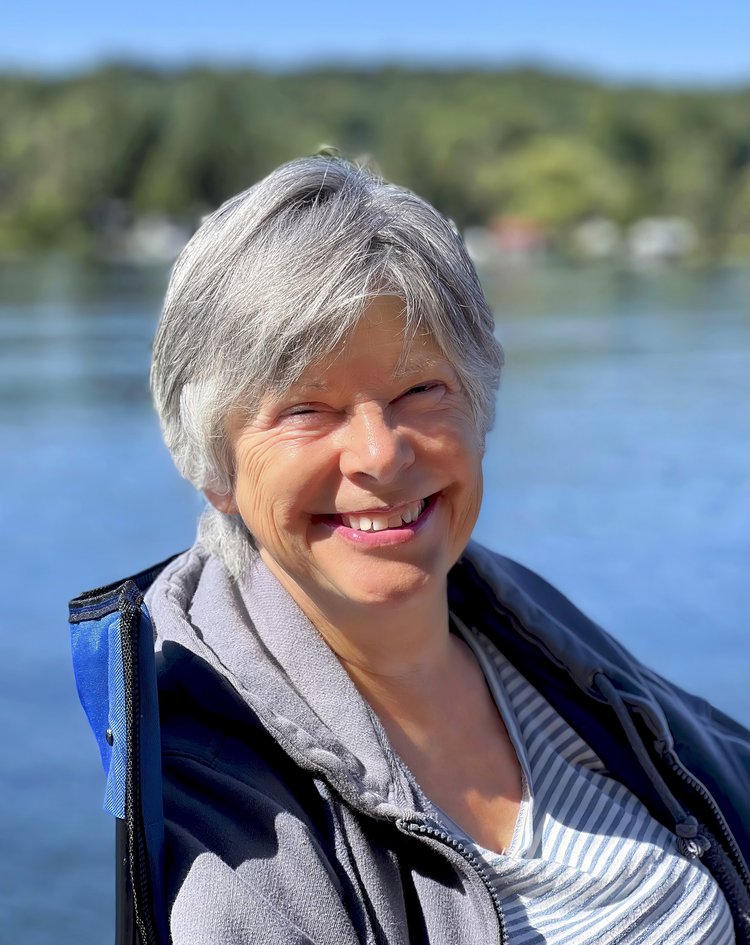Three converging things: 1) the note I keep on my desk, advice from Sokuzan, my Buddhist teacher: “Don’t conclude anything.” 2) an interview with Stephen Dunn in the new issue of The Georgia Review, and 3) a note from an editor rejecting the poems I sent him, saying: “they all share a common characteristic that tips the scale toward the Return side: some bits of summation/explication that are unnecessary and/or less interesting than the images and anecdotes and implied metaphors.” Stephen Dunn: “The poem might be smart, but who cares? It has to get away from itself.” I’m not sure I agree with the editor about these particular poems. Nevertheless, it's true I am an expert at logic (summation/explication). I was trained to be logical. I was rewarded for logic by the attention of my father. I was punished for the lack of it by eye-rolling distain. Maybe I’ve spent the last 30 years meditating to try to break out of that prison. The best I can say now is that I can see the prison of it. I see when the poem’s locked up. I see when my thoughts are locked up. I see when I can’t WAIT to artfully conclude the poem, to return it to its snug harbor.
1) the note I keep on my desk, advice from Sokuzan, my Buddhist teacher: “Don’t conclude anything.” 2) an interview with Stephen Dunn in the new issue of The Georgia Review, and 3) a note from an editor rejecting the poems I sent him, saying: “they all share a common characteristic that tips the scale toward the Return side: some bits of summation/explication that are unnecessary and/or less interesting than the images and anecdotes and implied metaphors.” Stephen Dunn: “The poem might be smart, but who cares? It has to get away from itself.” I’m not sure I agree with the editor about these particular poems. Nevertheless, it's true I am an expert at logic (summation/explication). I was trained to be logical. I was rewarded for logic by the attention of my father. I was punished for the lack of it by eye-rolling distain. Maybe I’ve spent the last 30 years meditating to try to break out of that prison. The best I can say now is that I can see the prison of it. I see when the poem’s locked up. I see when my thoughts are locked up. I see when I can’t WAIT to artfully conclude the poem, to return it to its snug harbor.  No matter that I’ve taught for years that a poem should skate out into a widening sky rather than tie itself into a nice neat bow. That it should open the mind, not satisfy the mind. You can’t will this to happen. Dunn says, “I have to discover what’s beyond what I wanted to say.” If you’re not a writer, hang on. I am thinking beyond making poems. Remember I was going to talk about aging? Aren’t old people supposed to have a few wise conclusions based on their long life? And politics. God knows I have conclusions, opinions.
No matter that I’ve taught for years that a poem should skate out into a widening sky rather than tie itself into a nice neat bow. That it should open the mind, not satisfy the mind. You can’t will this to happen. Dunn says, “I have to discover what’s beyond what I wanted to say.” If you’re not a writer, hang on. I am thinking beyond making poems. Remember I was going to talk about aging? Aren’t old people supposed to have a few wise conclusions based on their long life? And politics. God knows I have conclusions, opinions. 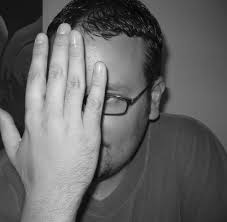 As Sokuzan says, conclusions are like holding your hand in front of your face. You see the conclusion, not the truth. The truth (now this is me talking) is slippery. Even in science, we know how slippery the truth is. Can’t pin it down. Opinions should probably be held lightly. Logical conclusions better come with a caveat. Dunn: “[I had] the wish to live a coherent life, one that made sense or would hold up. I gave that up; it was impossible.” Eavan Boland: "Poetry begins where certitude ends." With each surgery, Jerry and I both thought, okay, this is it. This will surely take care of the issues. Giving up on believing my own scenario has been really helpful. I do hope and expect that his pain and his mobility will improve, but this is our life, now, and who knows what the next day will be? Big sigh of relief in that, actually.
As Sokuzan says, conclusions are like holding your hand in front of your face. You see the conclusion, not the truth. The truth (now this is me talking) is slippery. Even in science, we know how slippery the truth is. Can’t pin it down. Opinions should probably be held lightly. Logical conclusions better come with a caveat. Dunn: “[I had] the wish to live a coherent life, one that made sense or would hold up. I gave that up; it was impossible.” Eavan Boland: "Poetry begins where certitude ends." With each surgery, Jerry and I both thought, okay, this is it. This will surely take care of the issues. Giving up on believing my own scenario has been really helpful. I do hope and expect that his pain and his mobility will improve, but this is our life, now, and who knows what the next day will be? Big sigh of relief in that, actually.  My junior high English teacher would give us extra credit for making booklets that illustrated and/or expanded on what we were studying in class. I realized very quickly that I could artfully paste some pictures, write a few captions, slap it all together, and get extra credit. Once I asked the art teacher to help me make a cover. She basically drew it for me. It was lovely, albeit not my work. Another few points of extra credit. At the time, my father made some scornful remarks about my not learning anything by this. He was right. It was a cheap cop-out and I knew it. So I bristled, of course. I have made poems like that. I have turned a poem loose at the exact point that I knew it was pleasing and/or funny, instead of keeping on to see what chaos might lie under it. I don’t know what can be done other than keep on keeping on, pushing the boundaries of the poem—or the essay—not giving up on it too soon. And pushing the boundaries of the mind by practicing listening well, making a deliberate intention to open rather than to close. It is entirely likely there are more things in heaven and earth, Horatio, than are dreamt of in my philosophy.
My junior high English teacher would give us extra credit for making booklets that illustrated and/or expanded on what we were studying in class. I realized very quickly that I could artfully paste some pictures, write a few captions, slap it all together, and get extra credit. Once I asked the art teacher to help me make a cover. She basically drew it for me. It was lovely, albeit not my work. Another few points of extra credit. At the time, my father made some scornful remarks about my not learning anything by this. He was right. It was a cheap cop-out and I knew it. So I bristled, of course. I have made poems like that. I have turned a poem loose at the exact point that I knew it was pleasing and/or funny, instead of keeping on to see what chaos might lie under it. I don’t know what can be done other than keep on keeping on, pushing the boundaries of the poem—or the essay—not giving up on it too soon. And pushing the boundaries of the mind by practicing listening well, making a deliberate intention to open rather than to close. It is entirely likely there are more things in heaven and earth, Horatio, than are dreamt of in my philosophy.
Archive
My Wobbly Bicycle, 153
- Well, I just haven’t. I haven’t posted in a long while. There’s been a great deal of caretaking around here, although Jerry does everything he can. Yesterday I saw him dragging the dirty clothes basket along behind his walker, making for the laundry room.
- Have I lost focus? Once I wrote about cancer, but that subject, thank whatever-gods-may-be, is worn out for the time being. I have thought if I use what precious writing energy I have on a post, I won’t have anything left for the poems and essays.
Yes, but of course energy begets energy. And when has not having anything to say stopped the words? They come out ahead of consciousness, sometimes. They know what they want even when “I” don’t. 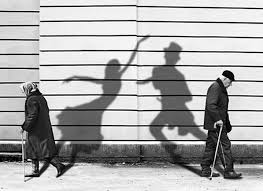 Aging. Aging and the writer. That subject should keep me busy for a long while. Today the subject is caretaking. There are probably two dozen good blogs about caretaking out there. And books. You don’t need to bother with this blog. However, I hope you do. Breathes there a caretaker with soul so dead that he or she doesn’t sometimes flare with internal anger, doesn’t watch others head out on mountain biking trips and feel jealous? Who doesn’t fantasize living alone, eating toast over the sink instead of bothering to get out breakfast stuff? Who doesn’t stare long minutes out the window at the turning trees?
Aging. Aging and the writer. That subject should keep me busy for a long while. Today the subject is caretaking. There are probably two dozen good blogs about caretaking out there. And books. You don’t need to bother with this blog. However, I hope you do. Breathes there a caretaker with soul so dead that he or she doesn’t sometimes flare with internal anger, doesn’t watch others head out on mountain biking trips and feel jealous? Who doesn’t fantasize living alone, eating toast over the sink instead of bothering to get out breakfast stuff? Who doesn’t stare long minutes out the window at the turning trees? 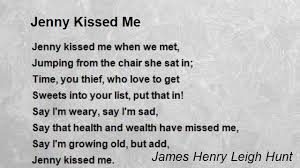 There’s no point in trying to balance that with heart-warming tales of the blessings of sharing hard times, of having a long-time mate that you love, no matter what. The deepening of tenderness and closeness when it’s down to brass tacks. No sense balancing at all. It’s not one or the other, but both.(Above poem is my 100-year-old father's favorite. Thought you might enjoy it.) Things have turned mysterious. First there was Jerry’s hip replacement, then it failed, then it was replaced again. For a short time there was no pain. In the last couple of weeks there is a lot of pain in the area of the sacrum. He’s had steroid injections. No help from that yet. We don’t know exactly what’s pressing on what, but after two major back surgeries, plus the hip surgeries, is there any wonder something’s pressing on something that it shouldn’t be. Can this be remedied? I don’t even know what we’ll have for lunch, much less what will transpire tomorrow.
There’s no point in trying to balance that with heart-warming tales of the blessings of sharing hard times, of having a long-time mate that you love, no matter what. The deepening of tenderness and closeness when it’s down to brass tacks. No sense balancing at all. It’s not one or the other, but both.(Above poem is my 100-year-old father's favorite. Thought you might enjoy it.) Things have turned mysterious. First there was Jerry’s hip replacement, then it failed, then it was replaced again. For a short time there was no pain. In the last couple of weeks there is a lot of pain in the area of the sacrum. He’s had steroid injections. No help from that yet. We don’t know exactly what’s pressing on what, but after two major back surgeries, plus the hip surgeries, is there any wonder something’s pressing on something that it shouldn’t be. Can this be remedied? I don’t even know what we’ll have for lunch, much less what will transpire tomorrow.  Meanwhile, Jerry’s just celebrated his 78th birthday. We’ve had to give up our Alaska cruise, which was to be our present to each other. Note to reader: buy trip insurance (we did). We drove up the peninsula to look at trees and gorgeous water, the way old people do, and stopped for lunch along the way. My sister and brother in law picked up dinner for the four of us and brought it to our place. My children and grandchildren travel all over the place. Kelly’s family was in Croatia this spring. Scott’s in Italy right now. Interestingly, I have always been pretty content with a computer, paper, pen, trees, crickets, and water to swim in. I prefer our lake but I can make do with the Y. There are all sorts of explorations, both interior and exterior. I lean toward the interior, anyhow. The interior has its own cathedrals and canals. In less than two weeks, I’ll have arthroscopic surgery to repair a torn meniscus that has tormented me for almost six months (took a while to diagnose). I’ll be glad to get it fixed, but there’s Jerry, unable to help while I’m hobbling or whatever I’ll be. I mention this because this is how it is when you get old—people’s ailments don’t conveniently take turns. They sometimes come on simultaneously. Meanwhile, I’ve written a couple of essays I’m happy with this year, and more poems, good and bad, than I usually admit to. I tend to pretend I’m a total wuss as a writer. It seems to be my way of clearing the decks for the next thing.
Meanwhile, Jerry’s just celebrated his 78th birthday. We’ve had to give up our Alaska cruise, which was to be our present to each other. Note to reader: buy trip insurance (we did). We drove up the peninsula to look at trees and gorgeous water, the way old people do, and stopped for lunch along the way. My sister and brother in law picked up dinner for the four of us and brought it to our place. My children and grandchildren travel all over the place. Kelly’s family was in Croatia this spring. Scott’s in Italy right now. Interestingly, I have always been pretty content with a computer, paper, pen, trees, crickets, and water to swim in. I prefer our lake but I can make do with the Y. There are all sorts of explorations, both interior and exterior. I lean toward the interior, anyhow. The interior has its own cathedrals and canals. In less than two weeks, I’ll have arthroscopic surgery to repair a torn meniscus that has tormented me for almost six months (took a while to diagnose). I’ll be glad to get it fixed, but there’s Jerry, unable to help while I’m hobbling or whatever I’ll be. I mention this because this is how it is when you get old—people’s ailments don’t conveniently take turns. They sometimes come on simultaneously. Meanwhile, I’ve written a couple of essays I’m happy with this year, and more poems, good and bad, than I usually admit to. I tend to pretend I’m a total wuss as a writer. It seems to be my way of clearing the decks for the next thing. 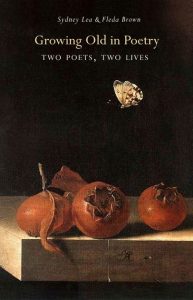 AND, the book I wrote with Sydney Lea, Growing Old in Poetry: Two Poets, Two Lives, has just come out in paperback from Green Writers Press in Vermont. It has a great cover and a new chapter on politics. It’s gotten great response from people who’ve gotten hold of it. I ought to have a book launch! This needs to be another blog post—the need to publicize when you get older and basically all you want to do is write.
AND, the book I wrote with Sydney Lea, Growing Old in Poetry: Two Poets, Two Lives, has just come out in paperback from Green Writers Press in Vermont. It has a great cover and a new chapter on politics. It’s gotten great response from people who’ve gotten hold of it. I ought to have a book launch! This needs to be another blog post—the need to publicize when you get older and basically all you want to do is write.
My Wobbly Bicycle, 152
 Four years have been swept away in the twinkling of an eye. This is odd, you know, since I seem to have been here all along, writing posts now and then, pontificating and musing and drolling and trolling. Nonetheless, one day a few weeks ago, I looked around on my website and found a vacuum between 2014 and now. Apparently I have been in hibernation. My web guy, who designed and takes care of my lovely site basically as a favor these days, his interests being elsewhere, was as mystified as I. He tried to pull it back. Did you know there’s a program that can find old versions of things posted? You can take back the past. Yes, but it’s a random capture, and not much was captured. He was able to mostly rebuild my home page and he’s put back in the books that have come out since then. Apparently the server he was using had failed to update its security and there was a hole in the dyke. Through it poured the return of my hair after chemo, Jerry’s two back surgeries, his hip replacement and the ensuing miseries, my studies of Black writers in preparation for interviewing Nikki Giovanni, and so on. I DO have these in Word files, but rebuilding the posts is more work than I’m willing to do. After all, what am I, famous or something? After my death, maybe some diligent and earnest graduate student can retrieve them from the Cloud, if he or she is desperate enough for a dissertation topic.
Four years have been swept away in the twinkling of an eye. This is odd, you know, since I seem to have been here all along, writing posts now and then, pontificating and musing and drolling and trolling. Nonetheless, one day a few weeks ago, I looked around on my website and found a vacuum between 2014 and now. Apparently I have been in hibernation. My web guy, who designed and takes care of my lovely site basically as a favor these days, his interests being elsewhere, was as mystified as I. He tried to pull it back. Did you know there’s a program that can find old versions of things posted? You can take back the past. Yes, but it’s a random capture, and not much was captured. He was able to mostly rebuild my home page and he’s put back in the books that have come out since then. Apparently the server he was using had failed to update its security and there was a hole in the dyke. Through it poured the return of my hair after chemo, Jerry’s two back surgeries, his hip replacement and the ensuing miseries, my studies of Black writers in preparation for interviewing Nikki Giovanni, and so on. I DO have these in Word files, but rebuilding the posts is more work than I’m willing to do. After all, what am I, famous or something? After my death, maybe some diligent and earnest graduate student can retrieve them from the Cloud, if he or she is desperate enough for a dissertation topic.  This all makes me think. Everything makes me think. I am stuck at home while Jerry serves his three-months' sentence after "revision"(that means it failed the first time) hip replacement. So instead of hiking or getting anywhere-the-heck-out-of-here for a while, I am thinking. That is, I am thinking between/during grocery shopping and cooking and cleaning up and washing and folding and cleaning the litter box and helping Jerry bathe and dress, driving us to appointments, taking my father to appointments, and doing stretches to help my tendonitis (any wonder?).
This all makes me think. Everything makes me think. I am stuck at home while Jerry serves his three-months' sentence after "revision"(that means it failed the first time) hip replacement. So instead of hiking or getting anywhere-the-heck-out-of-here for a while, I am thinking. That is, I am thinking between/during grocery shopping and cooking and cleaning up and washing and folding and cleaning the litter box and helping Jerry bathe and dress, driving us to appointments, taking my father to appointments, and doing stretches to help my tendonitis (any wonder?).  As the glorious northern summer rips by at warp speed, I am thinking of time and the perception of time. Where did the four years go? Were they an accumulation of dots along a continuum, of blog posts, or books? How narrow. Humans, in spite of our huge intelligence, have a truncated range of sensory perception compared to most creatures. Then we close even that in, to fit our preconceptions. It’s big out there. So, I am thinking about the width and breadth and depth of those four years, that still exist and no longer exist, depending on how you look at it. The older I get, the more complex things seem to be.
As the glorious northern summer rips by at warp speed, I am thinking of time and the perception of time. Where did the four years go? Were they an accumulation of dots along a continuum, of blog posts, or books? How narrow. Humans, in spite of our huge intelligence, have a truncated range of sensory perception compared to most creatures. Then we close even that in, to fit our preconceptions. It’s big out there. So, I am thinking about the width and breadth and depth of those four years, that still exist and no longer exist, depending on how you look at it. The older I get, the more complex things seem to be. 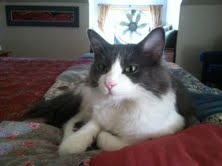 Wally’s nugget for today: “Time flies like an arrow; fruit flies like a banana.”
Wally’s nugget for today: “Time flies like an arrow; fruit flies like a banana.”
My Wobbly Bicycle, 151
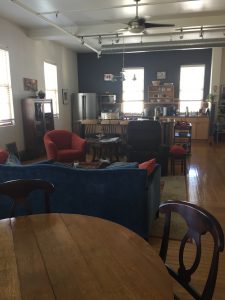 It’s 16 steps from our dining room table to the kitchen. Jerry prefers a complex mixture of dry cereal, granola, nuts, dried cherries, banana, and milk. Both of us also like cut-up fresh strawberries and blueberries on our cereal. Both of us like orange juice. I eat cooked oatmeal with ground flaxseed and yogurt. Plus, there are our vitamins. It's all up to me. In the first week of Jerry’s convalescence I clocked more daily steps on my Fitbit than before his surgery.
It’s 16 steps from our dining room table to the kitchen. Jerry prefers a complex mixture of dry cereal, granola, nuts, dried cherries, banana, and milk. Both of us also like cut-up fresh strawberries and blueberries on our cereal. Both of us like orange juice. I eat cooked oatmeal with ground flaxseed and yogurt. Plus, there are our vitamins. It's all up to me. In the first week of Jerry’s convalescence I clocked more daily steps on my Fitbit than before his surgery.  Necessity, however, is the mother of invention. Why have I never thought of a tray before? I can load it full and cut over half the trips. Then I load the dishwasher, clean up, add to my grocery list, get Jerry situated on the bed for his small exercises. Go wash my face and start my bathroom routine while he’s doing that. Then I come back and prop three pillows under his feet so he can lie there awhile to help reduce the swelling. I’ve gotten us here only until about 9:30. Oh no, the day begins much earlier. At 1 a.m. I am helping him into his (rented) recliner to spend the rest of the night because the brace becomes too uncomfortable in bed. I bring him water and pills. Then also I forgot the pre-breakfast routine, where I help him get partially dressed, feed Wally, clean the two lumps of misdirected kitty-poop off the floor. You get the idea. This will go on for three months, total. His left hip is not to bear any weight until the bone grafts and screws have firmly attached themselves.
Necessity, however, is the mother of invention. Why have I never thought of a tray before? I can load it full and cut over half the trips. Then I load the dishwasher, clean up, add to my grocery list, get Jerry situated on the bed for his small exercises. Go wash my face and start my bathroom routine while he’s doing that. Then I come back and prop three pillows under his feet so he can lie there awhile to help reduce the swelling. I’ve gotten us here only until about 9:30. Oh no, the day begins much earlier. At 1 a.m. I am helping him into his (rented) recliner to spend the rest of the night because the brace becomes too uncomfortable in bed. I bring him water and pills. Then also I forgot the pre-breakfast routine, where I help him get partially dressed, feed Wally, clean the two lumps of misdirected kitty-poop off the floor. You get the idea. This will go on for three months, total. His left hip is not to bear any weight until the bone grafts and screws have firmly attached themselves. 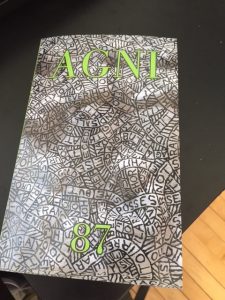 I’m sick of writing about such things, but such things are my life. Then I read the introduction to the new issue of Agni Magazine by its splendid editor, Sven Birkerts. Sven begins with his personal version of what we already know, that the “pile-up of consequential events is straining our ability to respond and changing the way we inhabit our lives.” He says he finds it hard to remember how things were before. Not that it hasn’t occurred to me before, but my life, fraught with constant calls for my attention, is a perfect mirror of what’s happening to us all, right now. Too much, too much. All Breaking News. Sven puts it: “To tune in is to be plunged into a quasi-hypnotic state, an ever-urgent ‘feed.’ It also occurs to me that the dwindling away of the dependent clause in poetry and in all writing, pretty much, these days is another perfect mirror of our inability to assign relative value. It’s all Breaking News. Nothing, as Sven says, is in the background. It’s all foreground.
I’m sick of writing about such things, but such things are my life. Then I read the introduction to the new issue of Agni Magazine by its splendid editor, Sven Birkerts. Sven begins with his personal version of what we already know, that the “pile-up of consequential events is straining our ability to respond and changing the way we inhabit our lives.” He says he finds it hard to remember how things were before. Not that it hasn’t occurred to me before, but my life, fraught with constant calls for my attention, is a perfect mirror of what’s happening to us all, right now. Too much, too much. All Breaking News. Sven puts it: “To tune in is to be plunged into a quasi-hypnotic state, an ever-urgent ‘feed.’ It also occurs to me that the dwindling away of the dependent clause in poetry and in all writing, pretty much, these days is another perfect mirror of our inability to assign relative value. It’s all Breaking News. Nothing, as Sven says, is in the background. It’s all foreground. 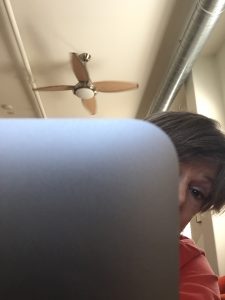 So where are our personal boundaries? he wonders. Where is the “I” when all is one giant news feed? Where is the writer in all this? “If our age’s drive is toward both speed and dispersion, or distraction, the making and encountering of art represent exactly the opposite principles. Art has always been about deceleration and attention. The made thing embodies labor and deep patience, and its nuances enforce slowness,” Sven writes. Hence, my opening passage. See. Here we are. Slowly living our lives. Even so, the unspoken tensions, the constant crises we all feel, are felt within the small, personal narrative. My overload is magnified by the national news overload. Inescapable. Yet art is the “locus of encounter,” as Sven says, “where meanings are tested.” I think of “tested” as seen and sorted out, given relative value. As in, my life is crucial, here, at this moment.
So where are our personal boundaries? he wonders. Where is the “I” when all is one giant news feed? Where is the writer in all this? “If our age’s drive is toward both speed and dispersion, or distraction, the making and encountering of art represent exactly the opposite principles. Art has always been about deceleration and attention. The made thing embodies labor and deep patience, and its nuances enforce slowness,” Sven writes. Hence, my opening passage. See. Here we are. Slowly living our lives. Even so, the unspoken tensions, the constant crises we all feel, are felt within the small, personal narrative. My overload is magnified by the national news overload. Inescapable. Yet art is the “locus of encounter,” as Sven says, “where meanings are tested.” I think of “tested” as seen and sorted out, given relative value. As in, my life is crucial, here, at this moment.
My Wobbly Bicycle, 149
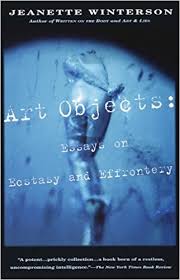 Reading Jeanette Winterson’s Art Objects shifted something in me. I’ve been sitting here a long time beside Jerry’s hospital bed. Generally, hospital-sitting makes me numb, or, rather, attentive basically only to what needs to be done at the moment. One thing after the other. People come in, people leave. Things have been like this a long time, or rather, time after time. Which is why you haven’t seen posts much lately. There’s a particular energy that has been missing, or, rather, used as fuel toward bare existence. This is all fine, but there comes a time—and this is what I’ve been thinking about—when just-living jumps a cog and tears through the ordinary into the shall-we-call-it? Creative.
Reading Jeanette Winterson’s Art Objects shifted something in me. I’ve been sitting here a long time beside Jerry’s hospital bed. Generally, hospital-sitting makes me numb, or, rather, attentive basically only to what needs to be done at the moment. One thing after the other. People come in, people leave. Things have been like this a long time, or rather, time after time. Which is why you haven’t seen posts much lately. There’s a particular energy that has been missing, or, rather, used as fuel toward bare existence. This is all fine, but there comes a time—and this is what I’ve been thinking about—when just-living jumps a cog and tears through the ordinary into the shall-we-call-it? Creative. 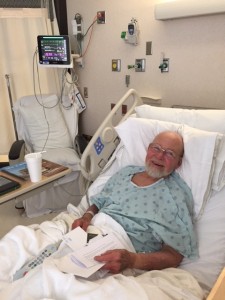 We have had one surgery after another here. This last year Jerry has had a major back surgery followed shortly by the need for a hip replacement. He had an abdominal hernia in the middle of all that. Then the hip replacement dramatically failed, which is where things are right now. Getting ready to try to fix that. Pain has been our constant companion for a long, long time, which makes for a great deal of bed-rock simplicity as well as a hunkering down. Hunkering down does not admit much that isn’t immediately useful.Then surprisingly I wanted to write to you again. “You” being my “letter to the world,” as E. Dickinson would say. The “you” being not exactly a real you, although I am sure you are, but more like the way the taproot I call newness chooses to reveal itself in the world. Such newness is of the spirit and doesn’t bypass the mundane so much as illuminate it at last, make it visible beyond the dead language, the cliché, the plodding, that has kept it embalmed. So, my question was, is, why and how now, rather than earlier? Or later? We’re still stuck here in the cardiac ward. We’re waiting to make sure that the atrial fibrillation that was showing up yesterday just minutes before Jerry was ready to go into hip revision surgery is not “serious.” So far I think it’s okay. Many of us have funny heartbeats, especially when we’re anxious. Especially when we’ve been waiting in the hospital for four days for this surgery. Especially after a long spell of extravagant hip pain. Here we are, having coffee, Jerry reading the paper. Nurses in and out. But, sitting here, I read one of Jeanette Winterson’s brilliant essays about the nature of art, how art “works,” and works on us. In the room of my soul, you might say, the lights had been turned down—for ease of sleeping, for ease of coping—and Winsterson walked in and turned them back up. This, I’m thinking, is how it works. Something turns the lights up.
We have had one surgery after another here. This last year Jerry has had a major back surgery followed shortly by the need for a hip replacement. He had an abdominal hernia in the middle of all that. Then the hip replacement dramatically failed, which is where things are right now. Getting ready to try to fix that. Pain has been our constant companion for a long, long time, which makes for a great deal of bed-rock simplicity as well as a hunkering down. Hunkering down does not admit much that isn’t immediately useful.Then surprisingly I wanted to write to you again. “You” being my “letter to the world,” as E. Dickinson would say. The “you” being not exactly a real you, although I am sure you are, but more like the way the taproot I call newness chooses to reveal itself in the world. Such newness is of the spirit and doesn’t bypass the mundane so much as illuminate it at last, make it visible beyond the dead language, the cliché, the plodding, that has kept it embalmed. So, my question was, is, why and how now, rather than earlier? Or later? We’re still stuck here in the cardiac ward. We’re waiting to make sure that the atrial fibrillation that was showing up yesterday just minutes before Jerry was ready to go into hip revision surgery is not “serious.” So far I think it’s okay. Many of us have funny heartbeats, especially when we’re anxious. Especially when we’ve been waiting in the hospital for four days for this surgery. Especially after a long spell of extravagant hip pain. Here we are, having coffee, Jerry reading the paper. Nurses in and out. But, sitting here, I read one of Jeanette Winterson’s brilliant essays about the nature of art, how art “works,” and works on us. In the room of my soul, you might say, the lights had been turned down—for ease of sleeping, for ease of coping—and Winsterson walked in and turned them back up. This, I’m thinking, is how it works. Something turns the lights up.  It isn’t enough to see or read or hear art, however. There has to be a way in. A door already unlocked. Then someone needs to stand at the darkened doorway and turn on the light in the next room. It could be Picasso, or Mozart, or the Buddha, or Jesus. Then, besides that, there must be a close teacher, intimate to us, whose life has been infused, often through a great deal of study and work, with what will be transmitted. Once there is a light, there must be someone pointing. A transmission. I use the word art, but what I’m really thinking is spirit. Aliveness. Awake-ness. This is why we who do art, do it even when no one gets it, when it seems unintelligible or crazy. Or a waste of time. We’ve gotten hold of a thread of light that even we don’t get, yet. And may never, completely. All we know is that it’s alive. And that our teacher saw it, and so we went after it.
It isn’t enough to see or read or hear art, however. There has to be a way in. A door already unlocked. Then someone needs to stand at the darkened doorway and turn on the light in the next room. It could be Picasso, or Mozart, or the Buddha, or Jesus. Then, besides that, there must be a close teacher, intimate to us, whose life has been infused, often through a great deal of study and work, with what will be transmitted. Once there is a light, there must be someone pointing. A transmission. I use the word art, but what I’m really thinking is spirit. Aliveness. Awake-ness. This is why we who do art, do it even when no one gets it, when it seems unintelligible or crazy. Or a waste of time. We’ve gotten hold of a thread of light that even we don’t get, yet. And may never, completely. All we know is that it’s alive. And that our teacher saw it, and so we went after it.
My Wobbly Bicycle, 56
 Hair! What a kerfuffle humans make of hair, as I wrote last year when it was all falling out. A week ago I went for my first haircut since what, December 2012? I regretted having even one of the precious dears trimmed, after the daily effort I’ve expended urging them to grow. But when hair comes back, it’s like baby hair, all different lengths, which encourages wild disarray. Still, it’s all curly-wild and probably will be until there’s enough weight and clipped ends to settle it down. It’s as thick as ever, for which I’m eternally grateful.
Hair! What a kerfuffle humans make of hair, as I wrote last year when it was all falling out. A week ago I went for my first haircut since what, December 2012? I regretted having even one of the precious dears trimmed, after the daily effort I’ve expended urging them to grow. But when hair comes back, it’s like baby hair, all different lengths, which encourages wild disarray. Still, it’s all curly-wild and probably will be until there’s enough weight and clipped ends to settle it down. It’s as thick as ever, for which I’m eternally grateful.
And then there’s the issue of color. When it started going gray years ago, I started having it touched up. Gradually “touching up” became a euphemism. Still, I wanted some gray showing, a signal that I wasn’t really trying to look young, I guess. Hair is the flag of our disposition. A signal. We say all sorts of things with it. “Keep it looking like I’m going gray,” I told my hairdresser, who devised a technique of painting the color through, leaving strands uncolored. The idea was to be “going gray” forever. 
But behold, here I am, my exact self in its exact color! A really nice steely gray, like my father’s (He has more white now that he’s 95). I’ve been contemplating this—gray or not gray?—for a while now. I feel good in gray. I am, after all, the age for it. My hair matches the rest of me. However, you can say all you want about gray being elegant, signaling wisdom, whatever, but basically, for those who don’t yet have gray hair, the gray-headed ones are dismissed as somehow no longer “counting” in the contemporary whirl. I think I used to feel that way.
Will I leave it gray? I have no idea. It’s a joy to see at last what it really-really looks like. Remember when I said it was interesting to see my bald head—most of us (the lucky ones) go a lifetime without ever seeing what our bare scalp looks like. Color-wise, I might have gone for a bunch more years before I gave up the illusion of a younger me. I would have, eventually—I’ve noticed when one is 80 or so, dark hair tends to look harsh.
For now and maybe forever, I’m liking this gray. I’m liking not wearing a wig. I’ve been grateful to have that absolutely perfect wig, for sure. It’s made the whole chemo-radiation process much less miserable, to be able to go shopping and not have people’s eyes change to what seems like a mixture of sympathy and separation (“Thank God it’s not me”). But speaking of separation—all the time wearing the wig, all the time coloring my hair, there’s a sense of disguise. Dramatically so, with the wig, only slightly, with the color.
Jerry says, “Do you feel inauthentic wearing contacts, eye makeup?” No. “So,” he says, “why would you feel that way about coloring your hair?” Maybe the difference is this: cosmetics don’t disguise anything; they just enhance. Color on gray hair is a disguise.
Nothing evil in that. Whatever makes us feel good when we look in the mirror is just fine in my book. I don’t feel any particular nobility in choosing not to color. A large percentage of women color their hair—look in the hair-color aisle at the drugstore! I don’t know whether I’ll stay gray, but I can feel a kind of settling in my body/mind as I look in the mirror. Yes, this is me. This is me, aging. I’ve caught up with myself. 
So far, not a word about writing in this post. I’m having a heck of a time getting anything written. A lot going on here, Jerry’s back surgery, Christmas, Jerry’s recovery routines. And so on. So, my beloved husband said to me, “You’ve written so much over the years, you have so many books and awards (he lays it on thick), you could never write another word and still have had a successful life as a writer. I’m not sure why you feel you MUST press onward.”
“You still don’t get it?” I respond tenderly. “What I’ve written doesn’t matter. What there is to be written this day, this moment, is what matters. Stuff is unshaped that needs to be shaped, that wants to try to fit, awkwardly or not, into words.” Well, I probably wasn’t that coherent.
I’m reading Ann Patchett’s collection of essays, This is the Story of a Happy Marriage. She describes the unwritten novel as a glorious butterfly. You can watch it flutter for years if you wish. But to actually get it written, you have to smash the butterfly, the dream of the perfect novel, and try to build back something only somewhat like it by slogging through muck. “If you want to write,” she says, “practice it for hours a day, not to come up with a story you can publish, but because you want to learn to write well, because there is something only you can say.”
At this moment I’m also thinking this about the gray hair, too. There is no one else who’s me. It makes some kind of sense to be exactly this. 
I put several photos of me here, so you'll recognize me next time you see me.
My Wobbly Bicycle, 55
 Christmas day, snow falling feathery, heaped. Deeply comforting. No sharp corners. It’s stunningly beautiful and one of the reasons we live here. If I could put my skis on or even go snowshoeing, that would be nice, but there’s this hip pain . . . . I did shovel a little, shame on me. Jerry’s recuperating from his back surgery, so we’re not going anywhere for a while. I love stopping. I love that in general, having an excuse to hibernate. I love that about poems, the way they stop. I love the lyric impulse. When there’s stopping, things burst their seams.
Christmas day, snow falling feathery, heaped. Deeply comforting. No sharp corners. It’s stunningly beautiful and one of the reasons we live here. If I could put my skis on or even go snowshoeing, that would be nice, but there’s this hip pain . . . . I did shovel a little, shame on me. Jerry’s recuperating from his back surgery, so we’re not going anywhere for a while. I love stopping. I love that in general, having an excuse to hibernate. I love that about poems, the way they stop. I love the lyric impulse. When there’s stopping, things burst their seams.
We have no family here. Jerry’s daughter Amy’s coming on Friday. Friends have stopped by, brought us wine, jams, cookies, little gifts, and whole meals. For us, 2013 has been a year of being recipients of great love and generosity. I’ve always been wary of sentimentality, which I think I’ve often translated as letting feelings show. Maybe I’d say the right thing, but the feeling of it was tamped down. Plenty of reasons in my past why that might be so, but there seems to be a softening here, now, which even makes me aware of my writing in a different way.
Heart, and how that shows up in our work, prose or poetry: I don’t know. . . . I’ve read some effusions that meant to be heart but made me back off. As with some relationships. I’m thinking the difference is, strangely, maybe, equanimity. There’s an opening, a generosity of the heart that shows up in the writing, the art, the music, that stands on its own, not leaning on anything. It doesn’t say, “Oh, look at how soulful I am,” or “Please love me,” or “Aren’t I generous?” It responds without a lot of fuss about it. It’s as if there’s a vacuum that needs to be filled, so it moves in to fill it. The impulse has an almost impersonal quality to it. In Buddhist terms, I’d say that this is an awareness of no-separation. In Christian terms (the only two traditions I know enough about to speak), there’s always Jesus between the impulse and the action.
Speaking of Jesus, whose birthday is celebrated today, Christmas sermons typically emphasize Jesus as representing hope, a new beginning, in a teleological way. A beginning (birth) and an end (death). There’s a beginning (sin) and an end (redemption) . The idea, generally, is to be good, generous, kind, toward some end. I prefer the sermons that talk about how we’re eternally at a pivot point, always beginning again whether we’re aware of it or not. And the closer we look, are we sure we know what’s good and what’s not? The book of Job says, more or less, “How can you possibly think you know the ways of God?”
What does openness of heart look like in art of all genres? Boy oh boy, I’m not sure how to say. Here’s what I’m pretty sure of: it shows up in a complete, continuous awareness that shuts nothing out. It doesn’t so much “sympathize” (feel for) as it expresses “compassion” (feeling with). That poor boy Pip in Great Expectations, how could Dickens have done any better at the beginning of that novel, expressing compassion? There’s Pip, alone in the graveyard. It’s cold, damp, foggy. He’s only seven, standing among the graves of his parents and his brothers. He names them, each one.
The long first paragraph ends, “The little bundle of shivers, growing afraid of it all and beginning to cry was Pip.”
Dickens can be insufferably sentimental, but not here. We are here with Pip, feeling alongside him.
And Yeats in “Easter, 1916”:
I write it out in a verse—MacDonagh and MacBrideAnd Connolly and PearseNow and in time to be,Wherever green is worn,Are changed, changed utterly:A terrible beauty is born.
To memorialize is one thing. To name the names of those killed in the Easter Rising in Ireland against British rule, to bring each one to consciousness and to end with that line, “A terrible beauty is born” is about as much heart as can be expressed on paper.
 In music and visual art, again, the one quality I can point to is “lack of leaning.” If there is direct seeing, it isn’t leaning one way or the other. If it were, there’d be blurring or distortion. Each note knows only it can speak at that moment, in concert with another, that also only knows itself. A musician might be able to explain what I mean.
In music and visual art, again, the one quality I can point to is “lack of leaning.” If there is direct seeing, it isn’t leaning one way or the other. If it were, there’d be blurring or distortion. Each note knows only it can speak at that moment, in concert with another, that also only knows itself. A musician might be able to explain what I mean.
This is all very psychological, what I think I’m saying. It seems as if the ego can’t just be held “in check.” it has to be not-believed in. Its self-generated self-importance has to be seen for what it is, to be aware of what’s really there, to sing what there is to sing, to paint what there is to paint.
Jerry and I were listening to St. Olaf’s College Choir coming from Norway. My God, what beautiful voices, what perfect sound. What struck me is how singers stand while singing, their body language. They’re in identical robes, hands at their sides, relaxed, their voices carrying the whole of their individual expression. They’re utterly “being with” each other and the music.
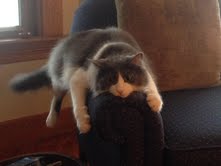 Merry Christmas to you from me, no matter what that may mean to either of us. Merry Christmas from Wally, who is fond of the Christmas tree and its dangling things, each individual one, bright and battable.
Merry Christmas to you from me, no matter what that may mean to either of us. Merry Christmas from Wally, who is fond of the Christmas tree and its dangling things, each individual one, bright and battable.
My Wobbly Bicycle, 54
Tonight I brought dinner to Jerry at the rehab place where he’s staying (Do you have any IDEA how badly some of our elders are fed in these places?). We watched an episode of HGTV (yes), and I cried when the man with five children whose wife had died sold his house so he could send the children to college.
 Trap # 1: the word depression. It only confirms itself. At the moment, okay, instead I’ll say the atmosphere around me is blue-black, and seems like a bass cello; no, I’d say an oboe, except that I’d see Sonia the duck in Peter and the Wolf. So like me, smiling at the duck while feeling like, well, shit.
Trap # 1: the word depression. It only confirms itself. At the moment, okay, instead I’ll say the atmosphere around me is blue-black, and seems like a bass cello; no, I’d say an oboe, except that I’d see Sonia the duck in Peter and the Wolf. So like me, smiling at the duck while feeling like, well, shit.
Depression is a worthy word, though: a sinking. As if gravity has a double-hold. It takes longer to do everything, and I’m clumsy because of these weights attached to my spirit. Okay, Jerry’s out of surgery, I got Wally-the-cat and me home, while the ambulance brought Jerry to rehab in Traverse City. He’s been there over a week now, due to come home Friday. He’s doing great, better than we would have imagined. Meanwhile, I have my six months’ oncology checkup on Friday. My poor oncologist. He does his best to save people, and what does he get for it? Fear. As if he were the Wolf in the aforementioned Prokokiev story, fangs dripping. 
I’m weary. There’s been so much strain around Jerry’s surgery, getting it planned, making it happen, getting to Ann Arbor, spending the week there, then home in the snow. Bringing him food Plus several secondary health things that have had to be dealt with, one being that I’m getting a steroid shot tomorrow for the pinched nerve (yes, that’s what it was) in my lumbar area. And it’s a week from Christmas.
Trap #2: trying to identify a reason or reasons. If I only hadn’t had to do this, or if only that hadn’t happened….Who can say? Who knows what if this, or what if that?
I mean for the Wobbly Bicycle to be kind of philosophical, universal, thoughtful, and all I’m doing is describing how I feel. I'm wondering WHEN Plath, Sexton, Snodgrass, Lowell--the poets that got stuck with the label "Confessional"-- actually started those poems, if they wrote anything in medias res. If they did, I'll bet they woke up the next day, wadded them up and started over, with better sense.
Shall I post this? I’ll probably regret it. What happens is, you're down and the mechanisms you usually use to present a face to the world collapse. So you either curl up in a corner to avoid exposure, or you say more, or different, from what you meant to.
However, Wally the Buddha cat says, “No writing is wasted.” He always says the right thing. And Sonia the duck says, "What the quack? You want a good story without tension and worry and sadness? Not happening." 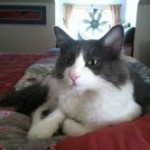
My Wobbly Bicycle, 53
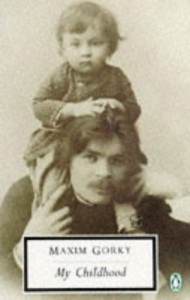 “Many years later I understood that because of the privations and the poverty of their lives, Russians in general liked to entertain themselves with misery: they played with it like children, and they were rarely ashamed to be wretched.” That’s from Maksim Gorky’s Childhood, that has just come out in a new translation. This is from the end of Chapter X. He goes on:
“Many years later I understood that because of the privations and the poverty of their lives, Russians in general liked to entertain themselves with misery: they played with it like children, and they were rarely ashamed to be wretched.” That’s from Maksim Gorky’s Childhood, that has just come out in a new translation. This is from the end of Chapter X. He goes on:
“In the endless tedium of daily life, grief becomes a holiday; a fire’s an entertaining show. On a blank face, even a scratch is a beauty mark.”
Gorky’s childhood was full of yelling, abandonment, drunkenness, beatings and more beatings, and all manner of deprivation. I was reading this last week when Jerry was in the University of Michigan Hospital—(so was I, since I was staying at the hotel inside the hospital). I was walking down corridors, looking in rooms where people lay alone or with an occasional visitor, and hooked up like Medusa to a tangle of tubes. Others sitting up in bed, surrounded by family, all watching TV and laughing together as if they were having a regular night. All varieties.
Then I started a new biography of Mozart and made note of these words: “Mozart avoided the noisy and empty fireworks that spoil so many of the violin works of the period. He thought them silly. He said he was ‘no great lover of difficulties for their own sake.’”
I was thinking of how we respond to both our own pain and that of others. Sometimes it seems we’re in love with difficulty for its own sake. Makes a good story afterward. The large scar, the almost-dying, the awful pain. But that’s when things turn out well. No one falls in love with serious, terrible difficulty.
I have no inclination to talk about last year’s chemo and radiation. I’d just as soon leave it in the past.But each week when I think what to write here, and every time I start a new poem, I’m on the lookout for the glitch, the place where there’s not smooth sailing, where there’s something to work with. Tension. You should see the line of staples down Jerry’s back! But hooray, it looks as if he’s going to be a lot better, the nerves having much more room to breathe. Rising action, climax, denouement. 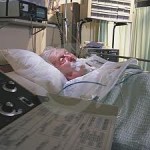
I’m willing to suspend a good ending, if the details are so intriguing that I’m caught in them, living the uncertainty. I’m willing to lose myself in a character, to see deep into the life, into its inherent ambiguities. But even then I notice there’s always some sort of tension and release, and I suspect that’s because existence itself breathes in and breathes out. Creation and destruction are not exactly twin poles; they’re simultaneous actions. When the breath sucks in, the abdomen and lungs expand. When the breath goes out, the ribs and abdomen pull inward. 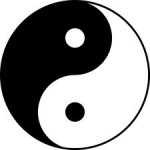
I wrote my dissertation a million years ago on the American man of letters, William Dean Howells. I traced patterns of imagery (yes,that long ago!) in four of his best-known novels. I was interested in how a consummate realist uses images. Do they remain realistic? When do they lift off and become metaphor? I found that Howells’ images alternated in an almost regular pattern from the concrete to the metaphorical/symbolic. (If you want further explanation, I’m likely to lend you my dissertation, so don’t ask!).
In Neurosurgery A corridor where Jerry was, there was in one room a bald woman who just lay there, no visitors that I ever saw. She didn’t appear to move all day. I looked in as I passed one evening and saw the nurse feeding her. I will never forget the expression on the nurse’s face. She didn’t know anyone was watching. Her face was so full of compassion and tenderness. She could have stuffed food in the woman’s mouth and daydreamed at the same time, or stared out the window. But she was giving that woman all the love she could in that moment. An absolutely bedrock realistic scene that for me lifted off into a wordless beauty.
That is difficulty and what it can draw forth. That is drama and passion. That is poetry and religion. That draws forth all the words in the world and stops all words in their tracks.
My Wobbly Bicycle, 52
This is the 52nd Wobbly Bicycle. One year of Wobblies. On the week a year ago that I decided to write about my cancer diagnosis, I gave the post that name, and kept using it. I’d thought to stop it after a year, and then I thought, well, when are we ever NOT wobbly bicycles? And certainly after a serious diagnosis, one is evermore aware of the beauty of flying along in perfect balance. Balance contains tentativeness, a little to this side, a little to the other. Nothing stable.
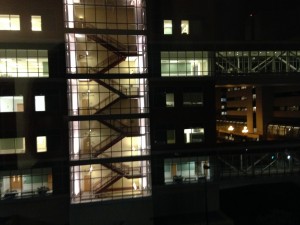 Jerry and I are in Ann Arbor, at the University of Michigan Hospital, where he just had back surgery. If you like drama, I could mention that he was in the O.R. for ten hours, with four surgeons in attendance. It must have been interesting, to figure out how to “fix” the spine from the deformity that develops after many years of the body’s leaning, trying to correct itself. Scoliosis and stenosis. The motif is balance, our wobbly-bicycle bodies.
Jerry and I are in Ann Arbor, at the University of Michigan Hospital, where he just had back surgery. If you like drama, I could mention that he was in the O.R. for ten hours, with four surgeons in attendance. It must have been interesting, to figure out how to “fix” the spine from the deformity that develops after many years of the body’s leaning, trying to correct itself. Scoliosis and stenosis. The motif is balance, our wobbly-bicycle bodies.
I brought a trekking stick with me because I knew the hospital is huge, I’d have to walk a lot, and I’m having maybe some sort of back issue myself, that causes me to limp if I walk very far. (There was no time to see a physiatrist before we left. I did have a hip x-ray, nothing wrong with my hips.) So, anyway, I’m using the trekking stick like a cane, and it keeps me from limping, which I think is a good idea, to keep from throwing my body out of kilter.
It’s interesting, being a “disabled” person, getting those quick glances, that special consideration, holding elevator doors, etc. I feel like I’m faking it, but then, what disabled person doesn’t feel whole inside?
This large hospital feels like a magical enclosure. I’m thinking of the people I see, in extremis, the nakedness of the situation. I was taking a walk down the long hallways today, aware of a deep pleasure that comes, no matter what the anguish, in being just what we are, vulnerable humans, putting aside the posing and ambition that seemed so crucial, just being glad for a breath, for care, for a moment without pain, for simple thoughtfulness. 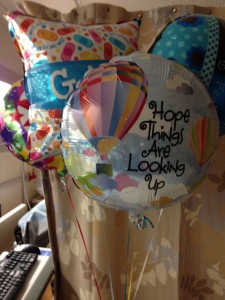
Something in this reminds me of being at the seashore. The waves come in and go out, and you can’t do anything about any of it, so there’s a great peace. Even in Hurricane Sandy, you can’t do anything about it, so you just act like a plain person for a change, taking care of what you can take care of, what’s right in front of you to do.
I sat for a while yesterday in the interminable time before the buzzer went off telling me Jerry was out of surgery, thinking how I might write about any of that—the immediacy of it—the moment seemed so just there, just what it was, that anything I said would be a distortion. You have to just leave moments like that alone, if you’re going to write about them, let them bubble up at another time, in another way.
